Tiangong
Heaven is enlightened, wonderful pens are born, and we explore the vast boundaries of language together.
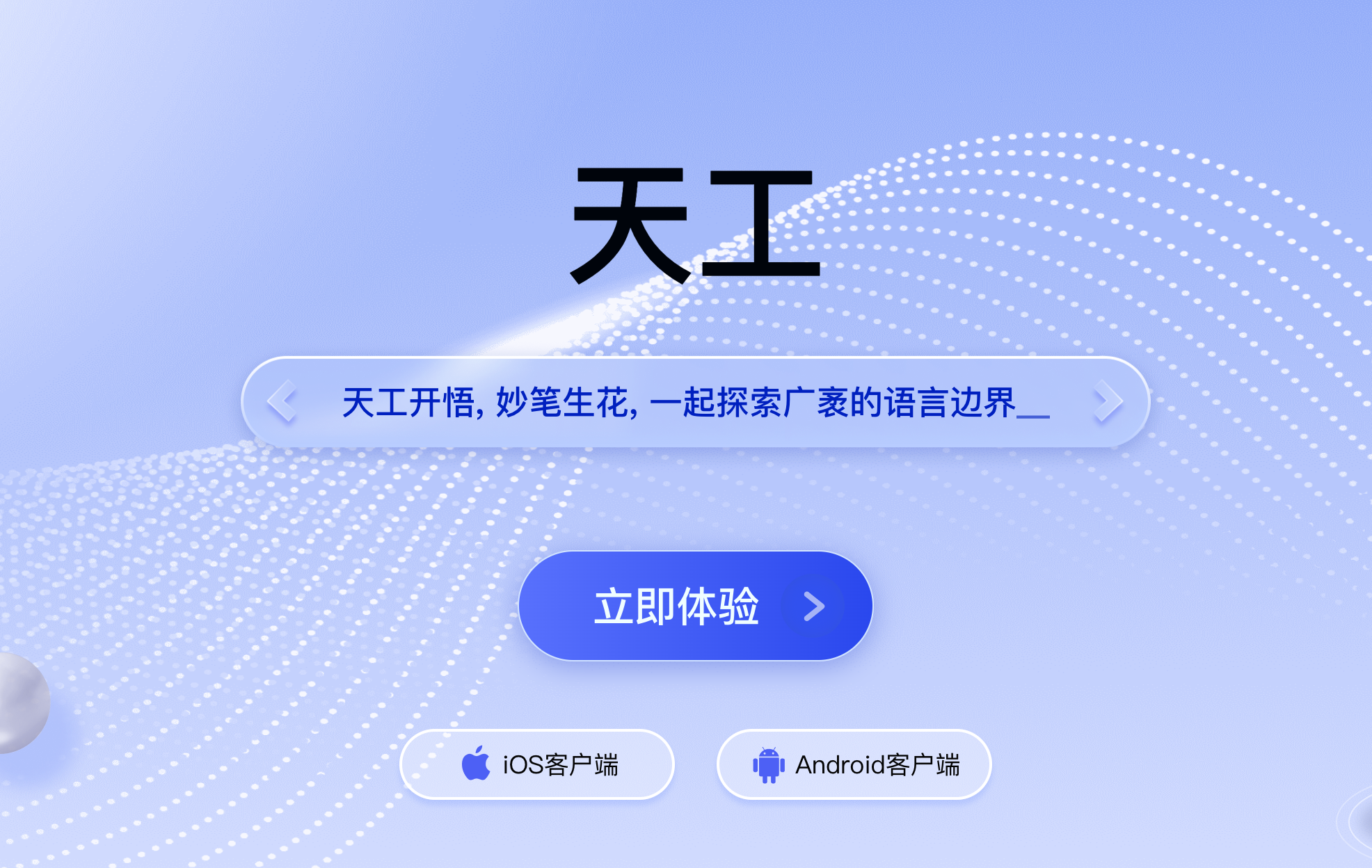
Product Details
Tiangong is Kunlun Wanwei's artificial intelligence product based on its self-developed double-hundred-billion-level language model. It provides six major capabilities and hundreds of functions in six major fields, including generative creation, knowledge question and answer, planning and decision-making, language understanding, coding ability and logic ability. Tian Tool has unique scene advantages and is suitable for social entertainment, games, advertising/marketing and overseas business scenarios. At the same time, Tiangong has technical advantages, accumulated core technology and rich experience in the team. Please visit the official website for details.
Main Features
Target Users
Tiangong is suitable for many scenarios such as entertainment, academia, and the workplace. It can be used for naming, writing poetry, solving equations, translating, writing code, etc.
Examples
Use Tiangong Online to generate creative names
Find cultural and historical knowledge through Tiangong
Tiangong provides career advice and business decision analysis
Quick Access
Visit Website →Categories
Related Recommendations
Discover more similar quality AI tools

PDFtoChat
PDFtoChat is a platform that allows users to have conversations with PDF files. It uses AI technology to analyze PDF content, allowing users to obtain information by asking questions, which greatly improves the efficiency of document processing. The product background information shows that it is powered by Together AI and Mixtral and is open source, with the source code available on GitHub. The main advantages of PDFtoChat include being free to use, easy to use, capable of handling complex document content, and supporting contributions from the open source community.

Message Batches API
The Message Batches API is an API launched by Anthropic that allows developers to process large numbers of queries asynchronously, with each batch containing up to 10,000 queries. This API is particularly suitable for handling non-time-sensitive tasks that do not require real-time response, such as customer feedback analysis, language translation, etc. It provides high throughput at half the cost of standard API calls, making large-scale data processing more cost-effective.
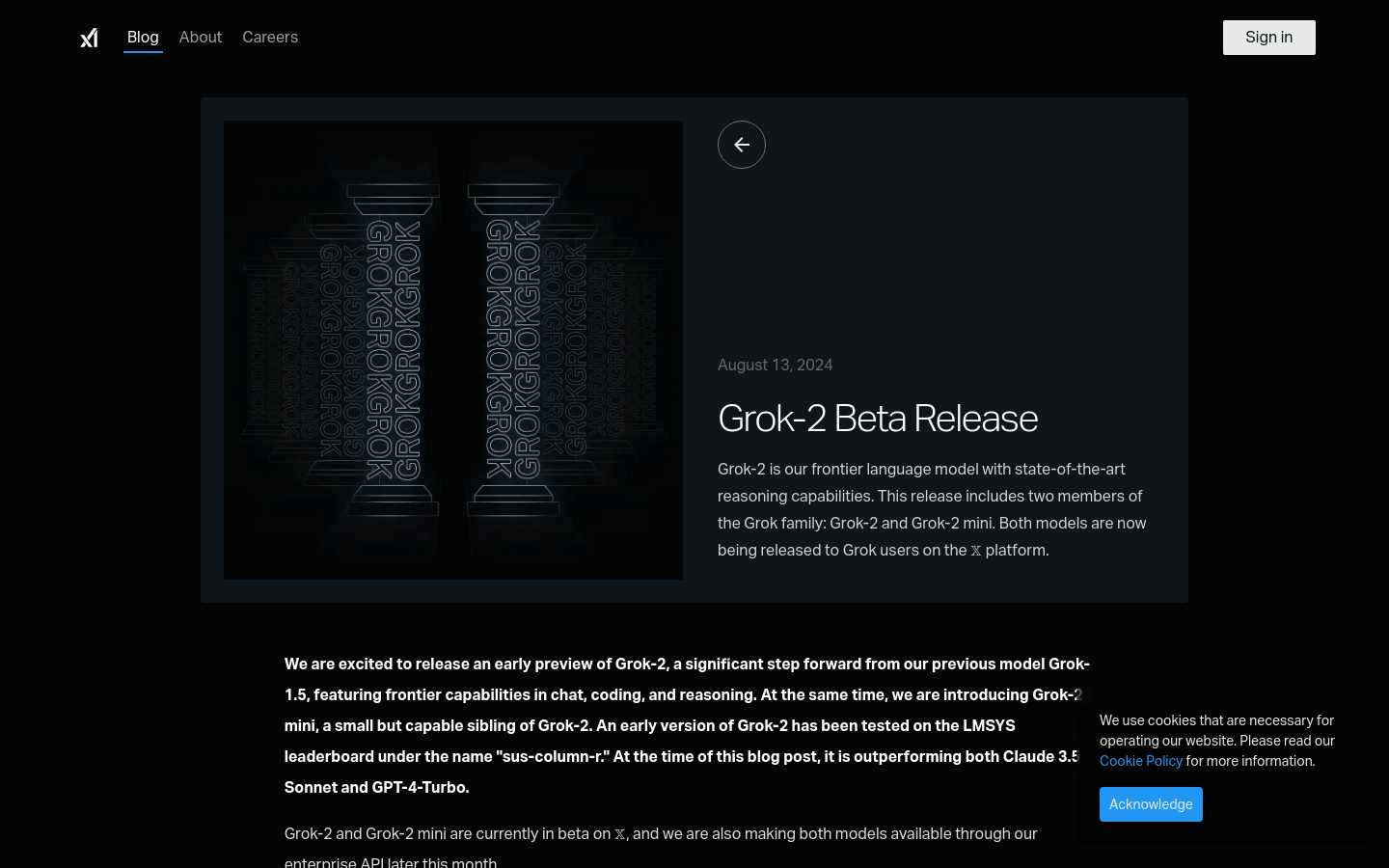
Grok-2
Grok-2 is xAI’s cutting-edge language model with state-of-the-art inference capabilities. This release includes two members of the Grok family: Grok-2 and Grok-2 mini. Both models are now released on the 𝕏 platform for Grok users. Grok-2 is a significant advancement from Grok-1.5, with cutting-edge capabilities in chatting, programming, and inference. At the same time, xAI introduces the Grok-2 mini, a small but powerful brother model of the Grok-2. An early version of Grok-2 has been tested on the LMSYS leaderboard under the name "sus-column-r". It surpasses Claude 3.5 Sonnet and GPT-4-Turbo in terms of overall Elo score.
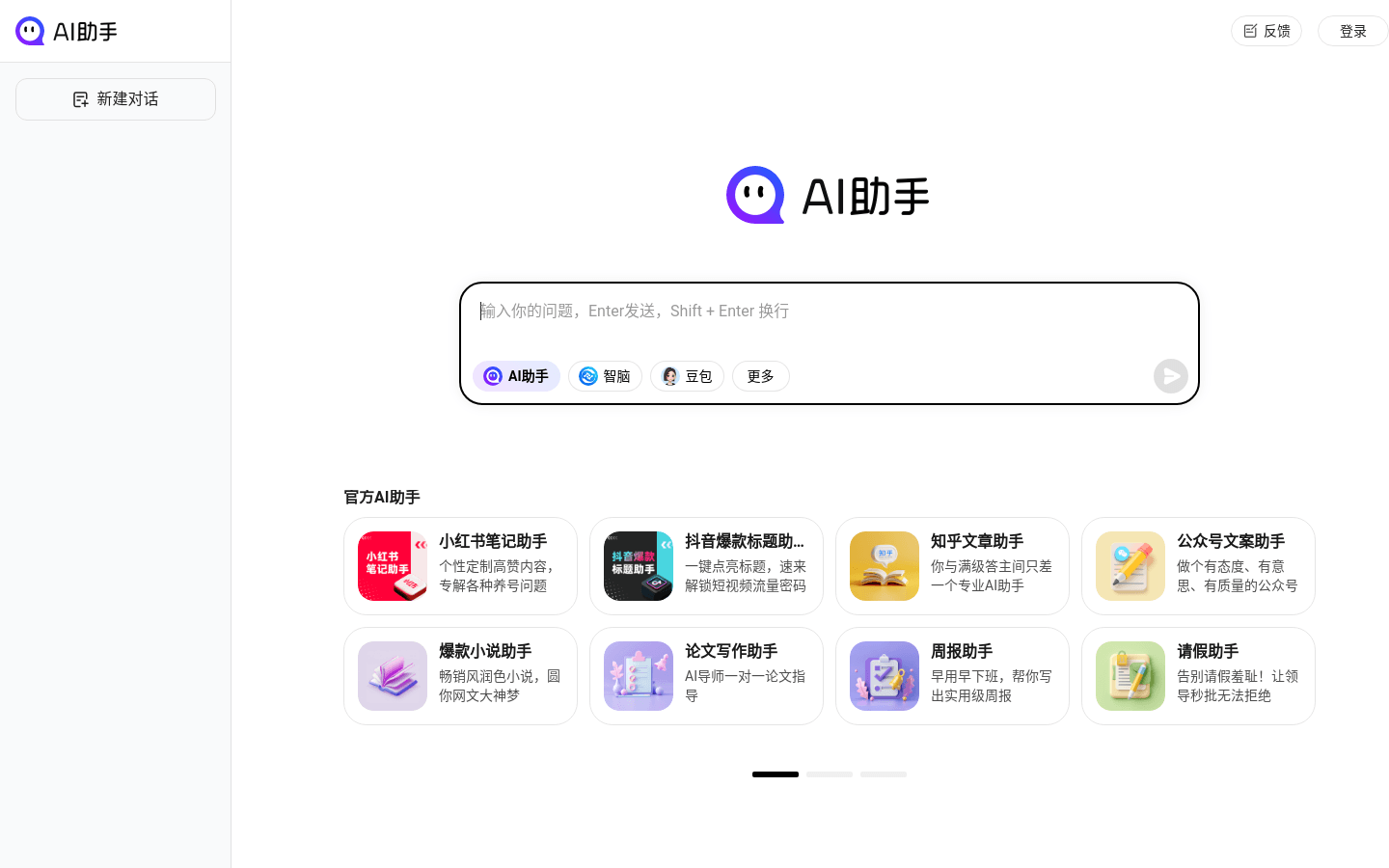
AI assistant
At the 12th Internet Security Conference Artificial Intelligence Summit of ISC.AI2024 held on August 1, 360 founder Zhou Hongyi released a new product called "AI Assistant". This product integrates 16 top domestic models. Users can select and switch these models according to their needs to achieve a personalized experience of "which one is the strongest and which one to use". Zhou Hongyi pointed out that the company not only pursues all-round independent large models, but also positions its future development route in the direction of hybrid large models. It is reported that the Beta version of the AI assistant based on the hybrid large model has surpassed GPT-4o in 11 individual ability test indicators. AI assistant is an intelligent service platform that integrates multiple functions and aims to improve users' efficiency in work, study and life through artificial intelligence technology. It helps users solve various problems and provides customized solutions through personalized services and intelligent recommendations.
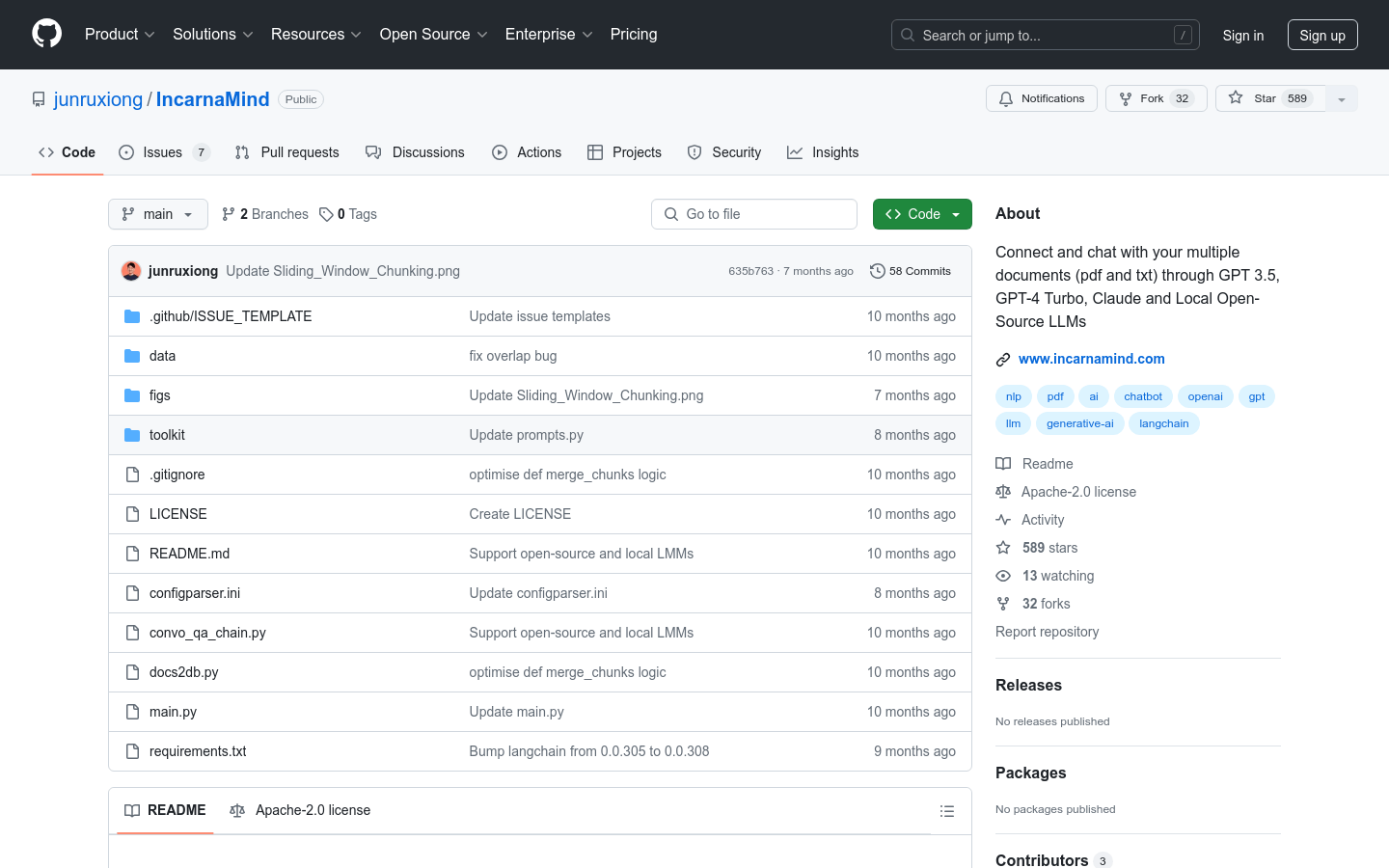
IncarnaMind
IncarnaMind is an open source project that aims to enable interactive dialogue with personal documents (PDF, TXT) through large language models (LLMs) such as GPT, Claude and local open source LLMs. This project utilizes the sliding window blocking mechanism and integrated searcher to improve query efficiency and enhance the accuracy of LLMs. It supports multi-document dialogue Q&A, breaks through the limitation of single document, and is compatible with multiple file formats and LLM models.
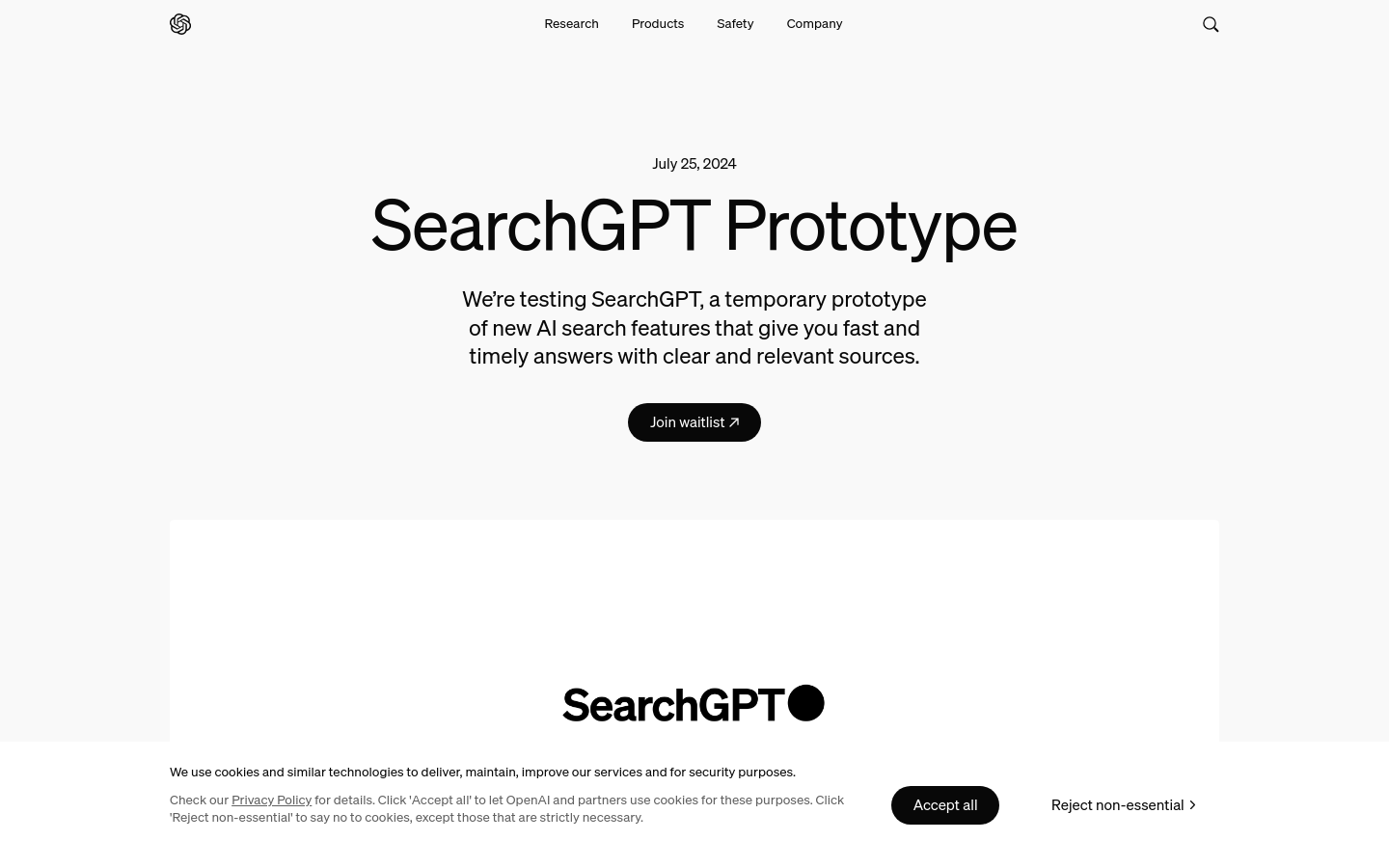
SearchGPT
SearchGPT is a new AI search function prototype in OpenAI testing. It combines the powerful capabilities of AI models with network information to provide users with fast, timely and clearly sourced answers. The prototype is currently only open to a small group of users and publishers to gain feedback. SearchGPT aims to enhance the conversational capabilities of models through real-time network information, making finding answers faster and easier. It also lets users ask follow-up questions like a conversation with a human, with shared context built with each query. OpenAI is committed to building a thriving ecosystem with publishers and creators, enhancing the search experience through conversational interfaces that highlight high-quality content and provide multiple opportunities for user engagement.

StockBot
StockBot is an AI chatbot powered by Groq that utilizes Llama3 70b’s Vercel AI SDK on Groq and TradingView’s live widgets to respond conversationally with live, interactive charts and interfaces specifically tailored to your requests. Groq's speed makes it possible to make tool calls and provide near-instant responses, allowing two API calls to be made, with responses returned using different pro-tips. Please note: StockBot may provide inaccurate information and does not provide investment advice. It is intended for entertainment and educational purposes only.

DeepSeek-V2-Chat-0628
DeepSeek-V2-Chat-0628 is an improved version of the DeepSeek-V2 series, designed specifically for conversation generation tasks. It performed well on the LMSYS Chatbot Arena Leaderboard, ranking 11th overall, especially in the programming tasks and challenging prompts. The model has significant improvements in multiple evaluation metrics, such as HumanEval, MATH, BBH, IFEval and Arena-Hard. In addition, its ability to follow instructions in the "system" field has also been optimized, significantly improving the user experience.
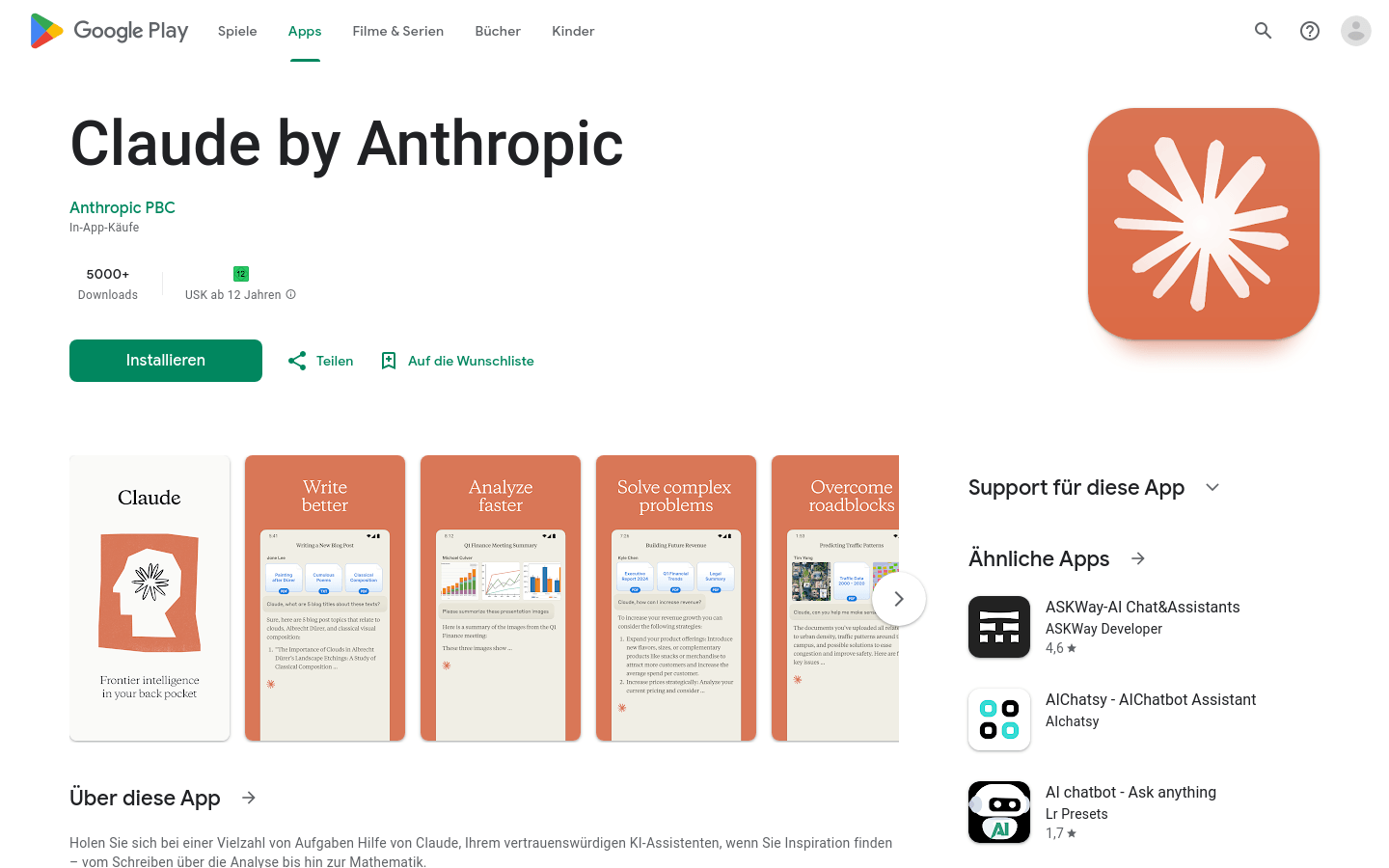
Claude by Anthropic
Claude by Anthropic is an AI assistant application developed by Anthropic PBC, which aims to help users complete various tasks through artificial intelligence technology. The application provides help in many areas from writing, analysis to mathematics, etc., which can significantly improve users' work efficiency and learning effect. The application was updated on July 16, 2024, focusing on data security and privacy protection, and supporting users to ask developers to delete data when necessary.

H2O AI Personal GPT
H2O AI Personal GPT is an AI assistant application developed by H2O.ai, aiming to provide intelligent and conversational AI services while ensuring user privacy and security. The application processes data locally without worrying about the data leaving the device. It supports use in non-network environments and is suitable for users who need mobile office and privacy protection.

Rodel Agent
Rodel Agent is a Windows desktop application that integrates chat, text-to-image, text-to-speech, and machine translation capabilities. It supports current mainstream AI services and provides users with an excellent desktop AI experience. The main advantages of this product include powerful integration functions, user-friendly interface and support for mainstream AI services, which can significantly improve users' work efficiency and creativity.

AI-Powered FAQ Generator
AI-Powered FAQ Generator is a tool that uses artificial intelligence technology to help users automatically generate a list of frequently asked questions on the website. It analyzes website content and quickly creates FAQ pages, thereby improving customer support efficiency and reducing manual customer service costs. The product background is in response to the needs of modern enterprises for automation and intelligent customer service. The main advantages include no need for programming knowledge, ease of use, free trial, etc.

Claude 3.5 Sonnet
Claude 3.5 Sonnet is an AI model launched by Anthropic that strikes a remarkable balance between intelligence, speed and cost. This model sets new industry benchmarks in graduate-level reasoning, undergraduate-level knowledge, and programming proficiency. It is particularly good at understanding nuance, humor, and complex instructions, and can write high-quality content in a natural, approachable tone. In addition, it excels at visual reasoning, chart interpretation, and image-to-text transcription, making it ideal for industries such as retail, logistics, and financial services.

Index-1.9B-Character
Index-1.9B-Character is a large-scale language model independently developed by the Index team. It focuses on the role-playing field and has a parameter scale of 1.9 billion. This model supports users to achieve rapid character customization by uploading character dialogue materials, and has high character consistency, dialogue ability and role-playing appeal. In the authoritative benchmark evaluation of CharacterEval, the overall average score ranks ninth, and its performance is better than that of models of the same magnitude.

Index-1.9B
The Index-1.9B series is a lightweight large language model independently developed by Bilibili. It includes multiple versions, such as base, pure, chat and character, etc. It is suitable for pre-training of corpus mainly in Chinese and English, and has performed well on multiple evaluation benchmarks. The model supports SFT and DPO alignment, as well as RAG technology for role-play customization, which is suitable for scenarios such as dialogue generation and role-playing.

Nemotron-4-340B-Instruct
Nemotron-4-340B-Instruct is a large language model (LLM) developed by NVIDIA, specially optimized for English single-turn and multi-turn conversation scenarios. The model supports a context length of 4096 tokens and undergoes additional alignment steps such as supervised fine-tuning (SFT), direct preference optimization (DPO), and reward-aware preference optimization (RPO). Based on about 20K manually labeled data, the model synthesized more than 98% of the data used for supervision fine-tuning and preference fine-tuning through a synthetic data generation pipeline. This enables models that perform well in human conversational preferences, mathematical reasoning, coding, and instruction following, and are able to generate high-quality synthetic data for a variety of use cases.